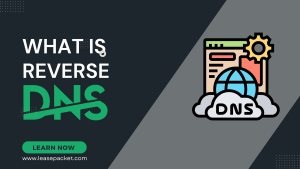Cloud computing today has become the backbone of digital transformation. Businesses have to face the dual challenge of harnessing the power of cloud technology while managing costs. As cloud adoption continues to soar, enterprises are turning to platforms like Microsoft Azure for their infrastructure needs. However, the flexibility offered by Azure also comes with the potential for escalating costs if not managed well. In this context, Azure cost management emerges as a crucial component of any organization’s cloud strategy, offering a comprehensive suite of tools and services designed to help businesses monitor, analyze, and optimize their Azure spending. In this article, we will see the aspects of Azure cost management in-depth – exploring its features, benefits, and best ways to optimize Azure cost.
Table of Contents
What is Azure Cost Management?
Azure cost management is a varied solution provided by Microsoft Azure. It is designed to empower organizations with insights and tools to manage their cloud spending effectively. At its core, Azure cost management operates by gathering usage & billing data from various Azure services, providing users with a holistic view of their cloud expenditures. This data is then processed & analyzed using advanced algorithms & machine learning models to identify spending patterns, cost drivers, and opportunities for optimization. By leveraging features such as cost analysis, budgeting, recommendations, and policy enforcement – Azure cost management enables organizations to make data-driven decisions, control costs, and maximize the value of their Azure investments.
Ready to enhance your workflow and collaboration? Explore the power of the comprehensive Microsoft Office 365 suite today!
Why Should You Consider Azure Cost Management?
The adoption of Azure cost management is crucial for organizations for the following convincing reasons:
1. Visibility
Azure cost management provides organizations with unparalleled visibility into their cloud spending, allowing them to understand where their money is being allocated and identify areas for optimization.
2. Cost Control
By setting budgets, defining policies, and receiving alerts – organizations can proactively manage their Azure spending and avoid unexpected costs – thereby ensuring financial discipline & accountability.
3. Optimization
Azure cost management offers tailored recommendations and insights based on usage patterns and best practices, enabling organizations to optimize their cloud resources and achieve maximum efficiency.
4. Compliance
With cost allocation & tagging, Azure cost management helps organizations ensure compliance with internal policies, industry regulations, and governance standards – mitigating risks and enhancing transparency.
Different Factors Affecting Azure Cost
Azure costs can be influenced by a multitude of factors, including:
1. Resource Usage
The level of resource utilization, including computing, storage, and networking – directly impacts costs. Optimizing resource usage and right-sizing deployments are essential strategies for cost containment.
2. Service Configuration
The configuration settings within Azure services can significantly affect pricing. Choosing the appropriate service tier, performance level, and configuration options is critical for cost optimization.
3. Data Transfer
The costs for data ingress, egress, and transfer between Azure regions can vary based on volume & distance. Minimizing unnecessary data transfer and leveraging caching & content delivery networks (CDNs) can help mitigate costs.
4. Region
Demand, availability, and local regulations – can affect Azure pricing from region to region. Selecting the correct region based on latency requirements, compliance considerations, and cost implications is essential.
5. Pricing Models
Azure offers various pricing models, including pay-as-you-go, reserved instances, and consumption-based pricing. Understanding the nuances of each pricing model and selecting the most cost-effective option based on workload characteristics is crucial for optimizing costs.
4 Best Ways to Optimize Azure Costs with Azure Cost Management
1. Azure Cost Analysis
Azure Cost Analysis provides organizations with granular insights into their Azure spending to enable them to analyze costs by resource, service, region, and more. By drilling down into cost data, organizations can identify trends, anomalies, and cost drivers – allowing them to make informed decisions and take corrective actions to optimize spending.
2. Azure Budgets
Azure Budgets empower organizations to set spending limits for Azure resources and receive proactive alerts when actual spending approaches or exceeds these thresholds. By establishing budgets aligned with business objectives and monitoring spending – organizations can maintain financial discipline, prevent budget overruns, and ensure cost compliance.
3. Azure Price Calculator
The Azure Price Calculator enables organizations to estimate the cost of Azure services based on specific usage scenarios and configurations. By simulating different deployment scenarios – organizations can compare pricing options, evaluate cost implications, and make informed decisions before deploying resources to avoid unexpected costs and optimize spending.
4. Azure Advisor
Azure Advisor offers personalized recommendations and best practices for optimizing Azure resources across various dimensions, including cost, performance, security, and reliability. Leveraging advanced analytics & machine learning algorithms, Azure Advisor identifies opportunities for cost optimization, such as right-sizing virtual machines, optimizing storage usage, and adopting reserved instances – enabling organizations to achieve significant cost savings and maximize ROI.
Quick Tips to Optimize Azure Costs
- Shutting down unused resources.
- Right-sizing resources that are underused.
- Azure savings plan addition for computing dynamic workloads.
- Reserving instances for consistent workloads.
- Taking advantage of the Azure Hybrid Benefit.
- Configuring auto scaling.
- Choosing the right Azure compute service.
- Setting up budgets & allocating costs to teams & projects.
Azure Cost Management Tools
Azure cost management provides a complete suite of tools & features to help organizations optimize their Azure spending:
1. Cost Analysis
Offers detailed insights into Azure spending to enable organizations to analyze costs by resource, service, region, and more – facilitating informed decision-making and cost optimization.
2. Budgets
Allows organizations to set & manage spending limits for Azure resources to empower them to maintain financial discipline, prevent budget overruns, and ensure cost compliance.
3. Price Calculator
This enables organizations to estimate the cost of Azure services based on specific usage scenarios & configurations to ease cost forecasting, budget planning, and decision-making.
4. Advisor
Provides personalized recommendations and best practices for optimizing Azure resources to help organizations reduce costs, improve efficiency, and enhance overall performance.
5. Policy Enforcement
Allows organizations to define and enforce policies for cost control, governance, and compliance to ensure adherence to organizational standards and industry regulations.
6. Integration
Integrates smoothly with third-party tools & services to enable organizations to streamline their cost management processes, enhance visibility, and unlock additional value.
Conclusion
Azure cost management is an indispensable tool for organizations seeking to optimize their Azure spending and maximize the value of their cloud investments. By providing visibility, control, and optimization capabilities – Azure cost management empowers organizations to make informed decisions, mitigate risks, and achieve their business objectives more effectively in the cloud. Whether it’s about analyzing costs, setting budgets, or implementing recommendations – Azure cost management equips organizations with the tools & insights they need to succeed in today’s dynamic and cost-conscious cloud environment. As organizations embrace digital transformation and scale their cloud operations, Azure cost management remains vital for driving growth.
FAQs
Q1. How does Azure cost management help organizations save money?
Azure cost management provides insights into cloud spending, identifies cost-saving opportunities, and offers recommendations for optimizing resource usage, resulting in significant cost savings.
Q2. Can Azure cost management help me set & manage budgets?
Yes! Azure cost management allows you to set spending limits for Azure resources, monitor spending in real time, and receive alerts when actual spending approaches or exceeds budget thresholds.
Q3. Is Azure cost management suitable for small businesses?
Why not! Azure cost management is suitable for businesses of all sizes. Whether you’re a small startup or a large enterprise – Azure cost management offers tools & features to help you optimize your cloud spending effectively.
Q4. How does Azure cost management analyze my spending patterns?
Azure cost management aggregates usage & billing data from Azure services to process it using advanced analytics & machine learning algorithms to present insights into spending patterns, cost drivers, and optimization opportunities.
Q5. Can Azure cost management help me choose the most cost-effective Azure services?
Absolutely! Azure cost management offers tools like the Azure Price Calculator and Azure Advisor to help you estimate the cost of Azure services, compare pricing options, and receive recommendations for cost optimization.
Q6. Is Azure cost management easy to use and integrate with my existing workflows?
Yes! Azure cost management is designed to be user-friendly and seamlessly integrate with your existing Azure workflows. With a user-friendly interface and robust integration capabilities, Azure cost management makes it easy for organizations to manage their cloud spending efficiently.

























